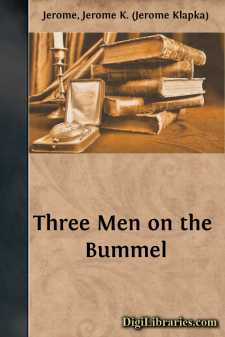Categories
- Antiques & Collectibles 13
- Architecture 36
- Art 48
- Bibles 22
- Biography & Autobiography 813
- Body, Mind & Spirit 142
- Business & Economics 28
- Children's Books 17
- Children's Fiction 14
- Computers 4
- Cooking 94
- Crafts & Hobbies 4
- Drama 346
- Education 46
- Family & Relationships 57
- Fiction 11829
- Games 19
- Gardening 17
- Health & Fitness 34
- History 1377
- House & Home 1
- Humor 147
- Juvenile Fiction 1873
- Juvenile Nonfiction 202
- Language Arts & Disciplines 88
- Law 16
- Literary Collections 686
- Literary Criticism 179
- Mathematics 13
- Medical 41
- Music 40
- Nature 179
- Non-Classifiable 1768
- Performing Arts 7
- Periodicals 1453
- Philosophy 64
- Photography 2
- Poetry 896
- Political Science 203
- Psychology 42
- Reference 154
- Religion 513
- Science 126
- Self-Help 84
- Social Science 81
- Sports & Recreation 34
- Study Aids 3
- Technology & Engineering 59
- Transportation 23
- Travel 463
- True Crime 29
The Apartment Next Door
Description:
Excerpt
CHAPTER I
THE FACE OF HATE
It was three o'clock in the morning. Along a deserted pavement of Riverside Drive strode briskly a young man whose square-set shoulders and erect poise suggested a military training. His coat, thrown carelessly open to the cold night wind, displayed an expanse of white indicative of evening dress. As he walked his heels clicked sharply on the concrete with the forceful firm tread of the type which does things quickly and decisively. The intense stillness of the early morning hours carried the sound in little staccato beats that could be heard blocks away. A few yards behind him, moving furtively and noiselessly, almost as if he had been shod with rubber, crept another figure, that of a stocky, broad-shouldered man, who despite his bulk and weight moved silently and swiftly through the night, a soft brown hat drawn low over his eyes as if he desired to avoid recognition.
All at once the man ahead paused suddenly and stood looking out over the river. Between the Drive and the distance-dimmed lights of the Jersey shore there rose like great silhouettes the grim figures of several huge steel-clad battleships, their fighting-tops lost in the shadows of the opposite hills. Beside them, obscure, with no lights visible, lay the great transports that in a few hours, or in a few days--who knew--they would be convoying with their precious cargo of fighting men across the war-perilled Atlantic.
It was on the forward deck of one of these great battleships that the eyes of the man ahead were riveted. His shadower, evidently much concerned in his actions, crept slowly and stealthily forward, approaching nearer and still nearer without being observed.
A dim light became visible on the warship's deck and then vanished. Still the man stood there watching, a puzzled, anxious look coming into his face. Quickly the light reappeared--two flashes, a pause, two flashes, a pause, and then a single flash. It was such a light as might have been made by a pocket torch, a feeble ray barely strong enough to carry to the adjacent shore, a light that if it had been flashed from some sheltered nook by the boat davits might not even have attracted the attention of the officer on the bridge nor of the ship's watchmen. Manifestly it was a signal intended for the eyes of some one on shore.
A muttered imprecation escaped the lips of the watcher on the Drive. He stood there, straining his eyes toward the ship as if expecting a following signal, then he turned and gazed aloft at the windows of the apartment houses lining the driveway to see if some answering signal flashed back.
And in the shadow of the buildings, hardly ten feet away but half sheltered by a doorway, stood his sinister pursuer, motionless but alert.
For perhaps a quarter of an hour they held their positions. At last the man who was being followed shrugged his shoulders impatiently and set off again down the Drive, from time to time turning his head to watch the spot from which the signal had been flashed. Behind him, as doggedly as ever and now a little closer, crept the man with the hat over his eyes.
Regardless of the lateness of the hour, at a third-floor window of one of the great apartment houses lining the Drive sat a young girl in her nightrobe, with her two great black braids flung forward over her shoulders, about which she had placed for warmth's sake a quilted negligee. Jane Strong was far too excited to sleep. An hour before she had come in from a wonderful party. The music still was playing mad tunes in her ears. The excitement, the coffee, the spirited tilts at arms with her many dancing partners had set her brain on fire. Sleep seemed impossible as yet.
Looking out at the river--a favorite occupation of hers--the sight of the warships looming up through the darkness reminded her once more that nearly all of the men with whom she had been dancing had been in uniform, bringing into prominence in the jumble of ideas in her over-stimulated brain, almost as a new discovery, the fact that her country was really engaged in war, that the men, the very men whom she knew best, were most of them fighting, or soon going to fight in a foreign land. Suddenly she found herself vaguely wishing that there was something she might do, something for the war, something to help. Would it not be splendid, she thought, to go to France as a Red Cross nurse, to be over there in the middle of things, where something exciting was forever going on. Life--the only life she knew about, existence as the petted daughter of well-to-do parents in a big city--had, ever since the war had begun, seemed strangely flat and uninteresting. Parties, to be sure, were fun but hardly any one was giving parties this year. The Stantons had entertained only because their lieutenant son was going abroad soon, and they wished him to have a pleasant memory to carry with him. Most of the interesting men she knew already were gone, and now Jack Stanton was going. How she wished she could find some way of getting into the war herself.
The sound of approaching footsteps caught her ear. Wondering who was abroad at that hour of the night she pushed up the window softly and looked out. In the distance she saw a man approaching, striding briskly toward her. As she stood idly watching him and wondering about him, suddenly she caught her breath. She had sighted the other figure behind, the man creeping stealthily after him. Nearer and nearer they came. In tense expectation she waited, sensing some unusual development. They had reached her block now. Almost directly under her window the man in advance paused to light a cigarette. His shadow paused, too, but some incautious movement on his part must have betrayed him.
Match in hand, the man in advance stood stock-still, his whole figure taut, poised, alert, in an attitude of listening. All at once he wheeled about, discovering the man close behind him. He sprang at once for his pursuer. The latter took to his heels, dashing around the corner, the man whom he had been following now hot at his heels.
All trembling with nervous excitement Jane leaned out the window to listen and watch. She could hear the running feet of both men just around the corner. What was happening? The running feet came to an abrupt stop. There was a half-smothered cry, a sharp thud, like a body striking the pavement, and then came silence. Puzzled, vaguely alarmed, a hundred questions came pouring into her brain and lingered there disturbingly. Why had one of these men been shadowing the other? Why had the pursuer suddenly become the pursued? Why had the running footsteps come to such an abrupt stop? What was the noise she had heard? What was happening around the corner? Her fears rapidly growing, she was on the point of arousing her family. But what excuse should she give? What could she tell them? After all she had merely seen two men run up the side street. More than likely they would only laugh at her, and she did not like being laughed at. Besides, Dad was always cross when suddenly awakened. Undecided what to do she stood at the window, peering into the night.
Five minutes, ten minutes she stood there in tremulous perplexity. A sense of impending tragedy seemed to have laid hold of her. A black horror seized her and held her at the window. Something terrible, something tragic, she was sure must have happened. Mustering up her strength and trying to calm her fears she was about to put down the window when she heard footsteps once more approaching. Straining her ears to listen she discovered the sound was that of the steps of a man--one man--approaching from around the corner. As she watched he turned into the Drive and came on toward her. She shrank back a little, fearful of being seen even though her room was in darkness. It was the first man. She recognized him at once by his top-hat and his evening clothes. He was walking even more briskly than before, almost running. There was no sign anywhere of the shorter thick-set man who had been following him. Something in the appearance of the figure in the street below struck her all at once as vaguely familiar. She wondered if it could be any one she knew.
Presently he came directly opposite the light on the other side of the Drive so that it shone for an instant full on his face. Jane looked and shuddered. Never in all her life had she seen any man's countenance so convulsed, not with pain, but with a soul-terrifying expression of hate, of virulent, murderous hate.
Distorted though the man's face was with such bitter frightfulness, she recognized him, not as any one she knew, but merely as one of the tenants in the same apartment building.
"It's one of the people next door," she said to herself and in verification of her identification, as he approached the building, the young man cast a swift glance over his shoulder, and then, as if satisfied that he was unobserved, dashed hurriedly in at the entrance.
Jane, more than ever wrought up with fear and dread of she knew not what, sprang hastily into bed and drew the covers about her shoulders. As yet she did not lie down but shiveringly waited. Presently she heard the elevator stop. She heard the key opening the door of the next apartment. In a few minutes she heard the man moving about his bedroom, separated from her own room by a mere six inches of plaster and paper, or whatever it is that apartment-house walls are made of.
What could have happened? She was certain that something terrible had occurred in which the young man next door had played a tragic, perhaps even a criminal part. She tried in vain to conjecture what circumstance could have been responsible for the look of hatred she had seen on his face. She wondered what had been the fate of the man who had been following him. Had they quarrelled and fought? What could have been the subject of their quarrel?
She tried to summarize what she knew about the people next door, and was amazed to discover how little she had to draw upon. As in most New York apartment houses so in Jane's home all the tenants were utter strangers to each other, one family not even knowing the names of any of the others. Occasionally, to be sure, one rather resentfully rode up or down in the elevator with some of the other tenants but always without noticing or speaking to them. Jane's family had been living in the building for five years, and of the twenty other families they knew the names of only two, having learned them by accident rather than intention. About the people next door Jane now discovered that she really knew nothing at all. There was a man with a gray beard who never took off his hat in the elevator, and there was the handsome young chap whom she had just seen entering. But what their names were, or their business, or how long they had lived there, or whether they were father and son, what servants they kept, or whether either or both of them was married--these were questions she could have answered as readily as if they had been living in Dallas, Texas, or Seattle, Washington, as in the next apartment. Quickly she found that she really knew nothing at all about them except--she could not recall that any one had told her or how she had got the impression--she was almost certain they were some sort of foreigners.
Just when it was that her troubled thoughts were succeeded by even more troubled dreams she was not aware, but it was noon the next day when she was awakened by the maid bringing in her breakfast tray.
"Terrible, Miss Jane, wasn't it," said the servant, "about that suicide last night, almost under our noses, you might say."
"Suicide!" cried the girl, at once wide-awake and interested "What suicide?"
"A man was found dead in the side street right by our building with a revolver in his hand."
"What sort of a looking man was he?"
"I didn't see him," said the maid, almost regretfully. "He was taken away before I was up. Cook tells me it was the milkman found him and notified the police."
"Who was he?"
"Nobody round here knows a thing about him. He shot himself through the heart and us sleeping here an' not knowing anything at all about it."
"But didn't any one know who he was?"
"Never a soul. The superintendents from all the buildings round took a look at the body, but none of them knew him. It wasn't anybody that lived around here. There's a piece in the afternoon papers about it."
"Get me a paper at once," directed the girl.
Eagerly she read the paragraph the maid pointed out. It really told very little. The body of a plainly dressed man had been found on the sidewalk. There was a revolver in his hand with one cartridge discharged, and the bullet had penetrated his heart. He had been a short stalky man and had worn a brown soft hat. There was nothing about his clothing to identify him, even the marks where his suit had been purchased having been removed. He had not been identified. The police and the coroner were satisfied that it was a case of suicide.
Suicide!
Jane, reading and rereading the paragraph, recalled the unusual occurrence she had witnessed the night before. Vividly there stood out before her the strange panorama she had seen, the tall young man in evening clothes, and the short stalky man with the soft hat who had followed him. The two of them had run around the corner. Only one of them had come back. Unforgettably there was imprinted in her memory the satanic expression on the young man's face as he had hastened into the house. No wonder he had cast such an anxious glance behind him as he entered.
Suicide!
Jane was certain that it was no suicide. She remembered the curious thud she had heard from around the corner, like a body falling to the pavement. She recalled that it must have been at least ten minutes before the other man reappeared, time enough to have placed the revolver in the dead man's hand, time enough even to have removed all possible means of identification from the man's clothing.
More than likely, she alone in all the world--knew who the murderer was.
It was not suicide, Jane felt certain. It was murder! Slowly but oppressingly, overwhelmingly, it dawned on her not only that in all probability a murder had been committed, but also that she--more than likely, she alone in all the world--knew who the murderer was, who it must have been--the young man next door.
Impatiently Jane looked at her wrist watch. It lacked an hour of the time when she was to meet her mother at the Ritz for tea. Her nerves still all ajangle from excitement and worry over the morning's tragedy, and her own accidental secret knowledge of certain aspects of the case had made it wholly impossible for her to do anything that day with even simulated interest.
She had been debating with herself whether or not to confide to her mother the story of the tragic tableau of which she had been an accidental witness, when Mrs. Strong had dashed into her bedroom to give her a hurried peck on the cheek and to say that she was off to luncheon and the matinée with Mrs. Starrett.
"You're not looking well to-day, dear," her mother had said. "Stay in bed and rest and join us for tea if you like."
Before she had opportunity to tell what she had seen, her mother was gone, but Jane had found it impossible to obey her well-meant injunction. She rose and dressed, her mind busy all the while with the problem of what her duty was. As she donned her clothing she paused from time to time to listen for sounds from the next apartment.
What was her neighbor doing now? Had he read of the discovery of the man's body in the street? Perhaps he had fled already? Not a sound was to be heard there. He did not look in the least like what Jane imagined a murderer would, yet certainly the circumstances pointed all too plainly to his guilt. She had seen two men dash around the corner, one in pursuit of the other. One of them had come back alone. Not long afterward a body--the body of the other man--had been found with a bullet in his heart. It must have been a murder.
What ought she to do about it? Was it her duty to tell her mother and Dad about what she had seen? Mother, she knew, would be horrified and would caution her to say nothing to any one, but Dad was different. He had strict ideas about right and justice. He would insist on hearing every word she had to tell. More than likely he would decide that it was her duty to give the information to the authorities. Her face blanched at the thought. She could not do that. She pictured to herself the notoriety that would necessarily ensue. She saw herself being hounded by reporters, she imagined her picture in the papers, she heard herself branded as "the witness in that murder case," she depicted herself being questioned by detectives and badgered by lawyers.
No, she decided, it would be best for her never to tell a soul, not even her parents. In persistent silence lay her safest course. After all she had not witnessed the commission of the crime....












